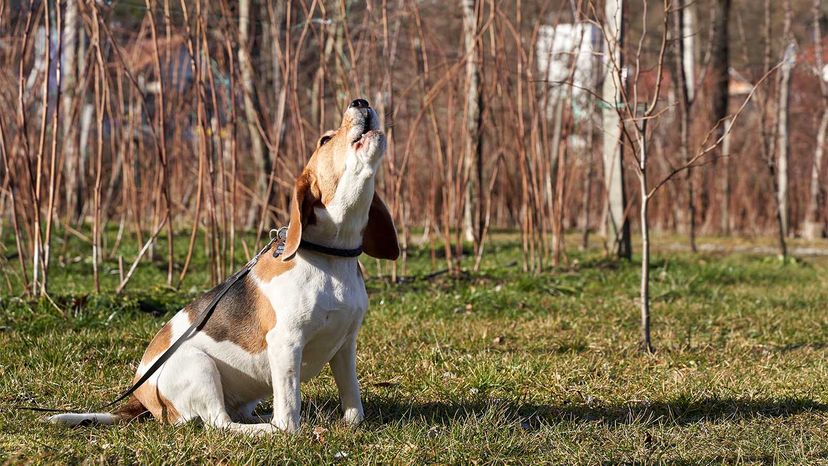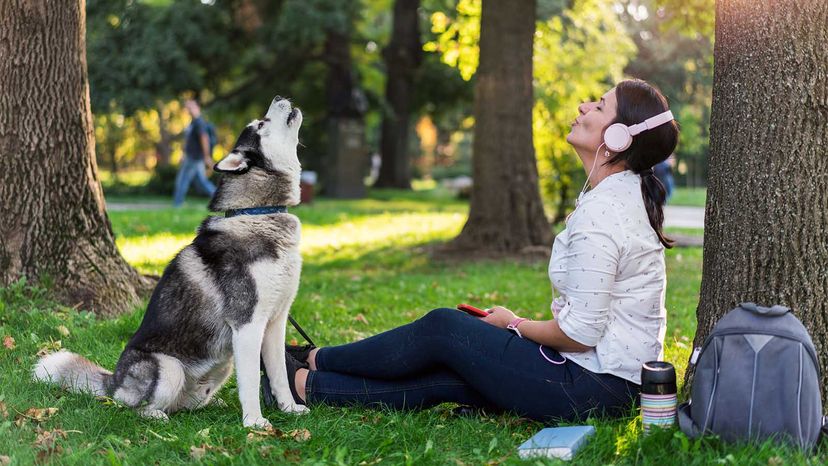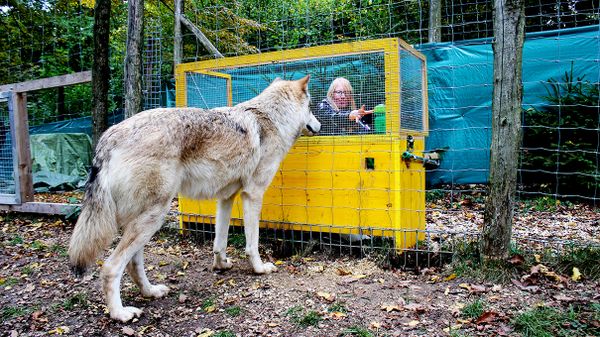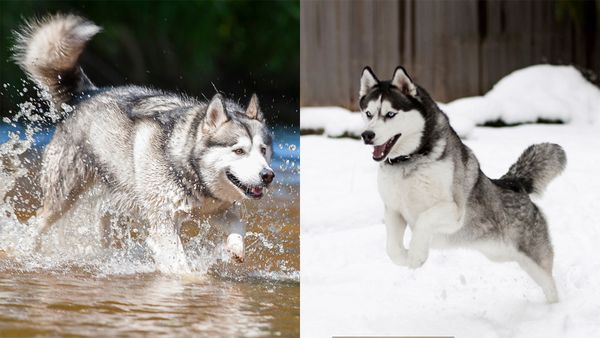As we've mentioned, there are a lot of reasons why a dog might howl, which might confuse you if your dog is the one doing the howling. Are they sad? Happy? Just howling at the moon? Unfortunately, Llera says, humans generally can't distinguish what dogs are trying to say from the sound of the howls alone.
"It is unlikely that people can differentiate the meanings behind a howl without some sort of visual frame of reference," he says, "or if they've been able to see their dogs howling previously and know what was going on at that time."
To understand why your dog is howling, it is necessary to use context clues. Is there another dog nearby? Is your dog showing other physical signs of injury? Have you noticed a high-pitched noise nearby that might disturb your pet?
And what if your dog howling is becoming a nuisance? Can you quell it? Unfortunately, as anyone with a loud dog — or perturbed neighbor — knows, sometimes we just want our dogs to be quiet. But since dogs often use howling and barking to communicate, is it even a good idea to stop them if we can?
"It may depend on what they're howling about and if they have some needs, such as comfort, companionship, food, etc.," Llera explains. "I wouldn't say that it's detrimental to try and get dogs to stop howling, provided there is not negative reinforcement or punishment."
How do you go about that? Here are a few suggestions. If your dog has separation anxiety and is howling when at home alone, try a few distractions like chew toys or even leaving the television on. Or in more dire cases, medication might be necessary.
If your dog is howling to get your attention, the American Society for the Prevention of Cruelty to Animals (ASPCA) says you need to teach the dog that howling doesn't work. Don't inadvertently reward them for the behavior. Instead, ignore them completely when they begin howling; don't look at them, pet them or speak to them and that includes reprimanding them. Reward them only when they are quiet. That includes giving them food, treats, toys, etc.
Of course, sometimes dogs just want to howl, and there's not much we can do about it.
"They also may just be expressing themselves," Llera says.




